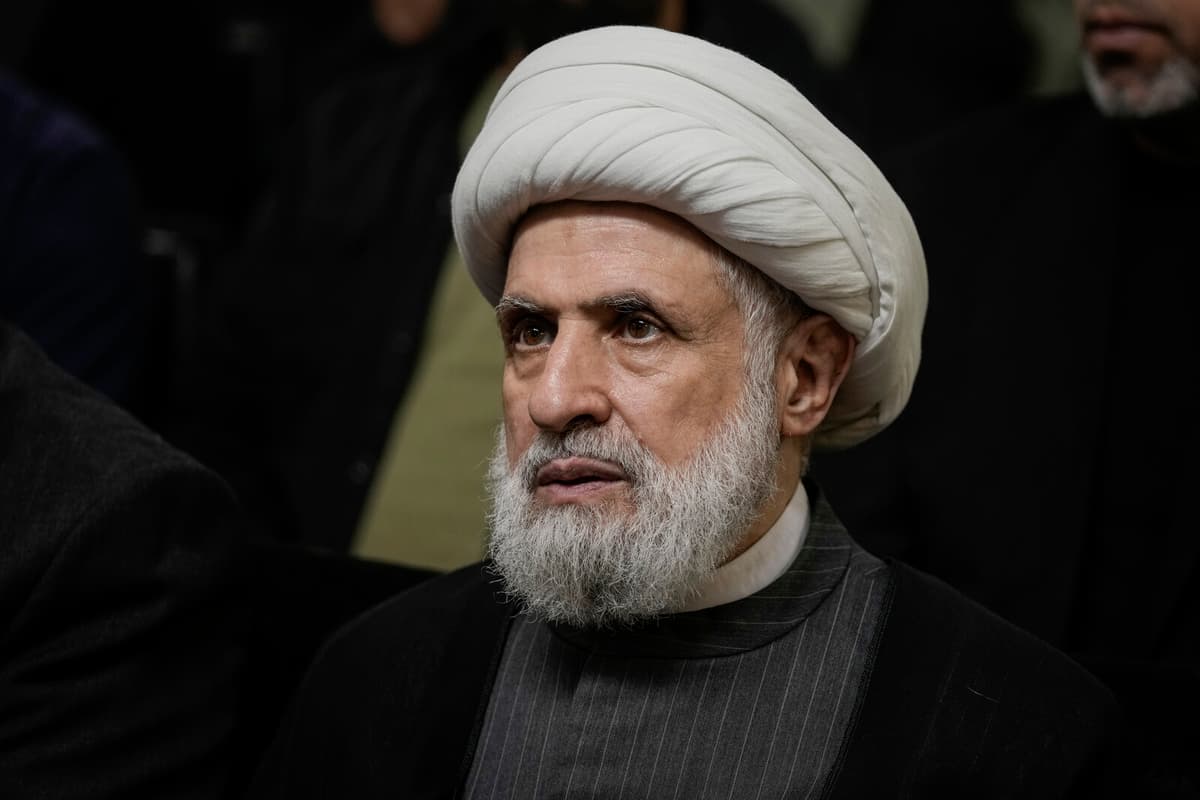Naim Qassem succeeds the long-time Hezbollah leader Hassan Nasrallah, who was killed in an Israeli attack on Beirut at the end of September. In October, Israel announced that Nasrallah's alleged successor, Hashem Safieddine, had also been killed.
Qassem, born in 1953 near the border with Israel, was one of the founders of Hezbollah in 1982. Since the early 1990s, he has been the movement's second-in-command and has been acting leader since Nasrallah's death.
Hours after the announcement, Israeli Defense Minister Yoav Gallant sent a warning to Qassem.
"Temporary appointment. Won't last long," he wrote, roughly, on X.
In a similar post in Hebrew, Gallant added that "the countdown has begun".
Ideologue or Operative?
Rouzbeh Parsi, program director at the Swedish Institute of International Affairs' Middle East and North Africa program, calls Qassem a "safe hand" given his long-standing activism in Hezbollah's leadership. The question is whether the 71-year-old ideologue has the ability to lead the operational activities, according to Parsi.
"If he is an organizational engine that can rebuild some of what Israel has destroyed in terms of personnel and institutional capacity," Rouzbeh Parsi writes in a comment.
The exact whereabouts of Qassem are unknown. According to Israeli media, he fled from Lebanon to Iran in early October – on the same plane as Iranian Foreign Minister Abbas Araghchi used for his state visit to Lebanon and Syria.
Pain – and Ceasefire
Since Nasrallah's death, Qassem has delivered three televised speeches. In the latest, he claimed that Hezbollah will not back down in the battles against Israel and that the group has adopted a new strategy aimed at making Israel "feel pain".
But he also stated that a ceasefire is the solution.
I tell the Israelis: the solution is to stop shooting.
The solution is a ceasefire. After a ceasefire, the settlers will be able to return north, said Qassem, referring to the tens of thousands in northern Israel who have been forced to leave their homes due to the fighting.
An Islamic movement, created in the early 1980s as a reaction to a conflict situation similar to today's.
The Palestine Liberation Organization (PLO) had used southern Lebanon as a base for attacks on northern Israel, which led Israel to invade in 1982. Inspired by the Islamic revolution in Iran a few years earlier, Lebanese Islamists formed the Shia movement Hezbollah ("God's party"), a name chosen by the Iranian leader Khomeini.
A stated main goal has been to expel all "colonialists". In practice, this has meant that much of the armed struggle has been directed against Israel – seen as the representative of the Western world in the Middle East.
Hezbollah has been a political party in Lebanon since 1982 and functions as "a state within a state", with a military power at least as great as the country's army and a strong role in politics and social life.
The Iran-backed movement has been entirely labeled as a terrorist organization by several countries, while others – including the EU – have only labeled its armed wing as such.






